Mobile IV FAQs
Frequently Ask Questions
-
What is IV Therapy?
Intravenous (IV) therapy is a medical treatment that involves the administration of fluids, medications, or nutrients directly into the bloodstream through a vein. IV therapy is often used when patients are unable to take medications or fluids orally, or when a rapid response is required. The procedure involves inserting a needle or catheter into a vein, typically in the arm, and then connecting it to an IV bag or syringe. The contents of the bag or syringe are then slowly infused into the bloodstream over a period of time, depending on the treatment being administered. IV therapy is commonly used in hospitals, clinics, and other healthcare settings, but it can also be administered in the home setting by a qualified healthcare professional, like those on the BioMed Mobile IV & Wellness team. Some of the most common uses for IV therapy include hydration, nutrition, chemotherapy, and blood transfusions, but it can also be used for a variety of other medical purposes.
-
What are the benefits of IV therapy?
IV therapy can offer a range of benefits for patients with various medical conditions. One of the primary benefits of IV therapy is that it provides a rapid and direct way of administering medications or nutrients, bypassing the digestive system and allowing for quicker absorption into the bloodstream. This can be particularly useful for patients who are unable to take medications orally or who require immediate medical attention. IV therapy can also help to improve hydration levels, which is essential for maintaining bodily functions and overall health. Additionally, IV therapy can provide a boost to the immune system, reduce inflammation, and support the body’s natural healing processes. Overall, IV therapy can be a safe and effective way to deliver essential nutrients, medications, and fluids to patients in a variety of medical settings.
-
Is IV Therapy safe?
IV therapy can be a safe and effective medical treatment when administered by a qualified healthcare professional. However, as with any medical procedure, there are potential risks and complications that should be considered. Each patient is assessed beforehand to make sure they are a suitable candidate for the therapy and doses can be tailored, depending on the condition and the vitamins and minerals required. Overall, when administered properly, IV therapy can be a safe and effective medical treatment for a variety of conditions.
-
What are some common uses for IV therapy?
IV therapy can be used for a variety of medical purposes, including hydration, nutrition, chemotherapy, blood transfusions, and medication administration.
-
Can IV therapy be done at home?
Totally! IV therapy can be administered in the home, office, or hotel setting by one of BioMed’s qualified healthcare professionals.
-
How is IV Therapy administered?
IV therapy involves inserting a needle or catheter into a vein, typically in the arm, and then connecting it to an IV bag or syringe. The contents of the bag or syringe are then slowly infused into the bloodstream over a period of time.
-
Is IV therapy painful?
Some patients may experience mild discomfort or pain at the injection site, but this is typically temporary and can be managed with over-the-counter pain medication.
-
How long does a typical mobile IV therapy take?
The length of time for IV therapy depends on the type of treatment being administered. BioMed’s typical treatment times are 60 minutes.
-
Are there any side effects of IV therapy?
Some patients may experience side effects such as nausea, dizziness, or headache during or after IV therapy. Serious complications are rare but can occur, such as blood clots, allergic reactions, or damage to the veins or arteries.

